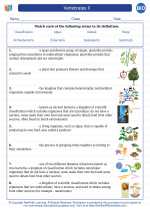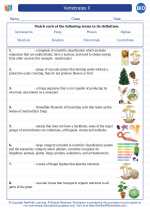Vitamin B1 (Thiamine)
Vitamin B1, also known as thiamine, is a water-soluble vitamin that plays a crucial role in the body's ability to convert carbohydrates into energy. It is an essential nutrient that must be obtained from the diet, as the body cannot produce it on its own.
Sources of Vitamin B1
Functions of Vitamin B1
Vitamin B1 plays several important roles in the body, including:
- Converting carbohydrates into energy
- Supporting the nervous system
- Assisting in the production of neurotransmitters
- Participating in the synthesis of DNA and RNA
Deficiency and Health Implications
A deficiency in vitamin B1 can lead to a condition known as beriberi, which is characterized by symptoms such as fatigue, muscle weakness, nerve damage, and cardiovascular problems. Chronic alcoholics are at a higher risk of developing vitamin B1 deficiency due to poor dietary intake and impaired absorption.
Recommended Daily Intake
The recommended daily intake of vitamin B1 varies by age and gender. For adults, the recommended dietary allowance (RDA) is 1.1 to 1.2 mg per day.
Study Guide
When studying vitamin B1, it's important to focus on its sources, functions, and the implications of deficiency. Make sure to understand the role of vitamin B1 in energy metabolism and its importance for the nervous system. Additionally, familiarize yourself with the recommended daily intake and the groups at risk for deficiency.
Consider creating flashcards to remember the sources of vitamin B1 and its functions in the body. Practice applying this knowledge to real-life scenarios, such as dietary recommendations and the impact of vitamin B1 deficiency on health.
Remember to stay updated with the latest research on vitamin B1 and its implications for human health, as new findings may emerge over time.
.◂Biology Worksheets and Study Guides High School. Vertebrates II

 Worksheet/Answer key
Worksheet/Answer key
 Worksheet/Answer key
Worksheet/Answer key
 Vocabulary/Answer key
Vocabulary/Answer key
 Vocabulary/Answer key
Vocabulary/Answer key
 Vocabulary/Answer key
Vocabulary/Answer key
